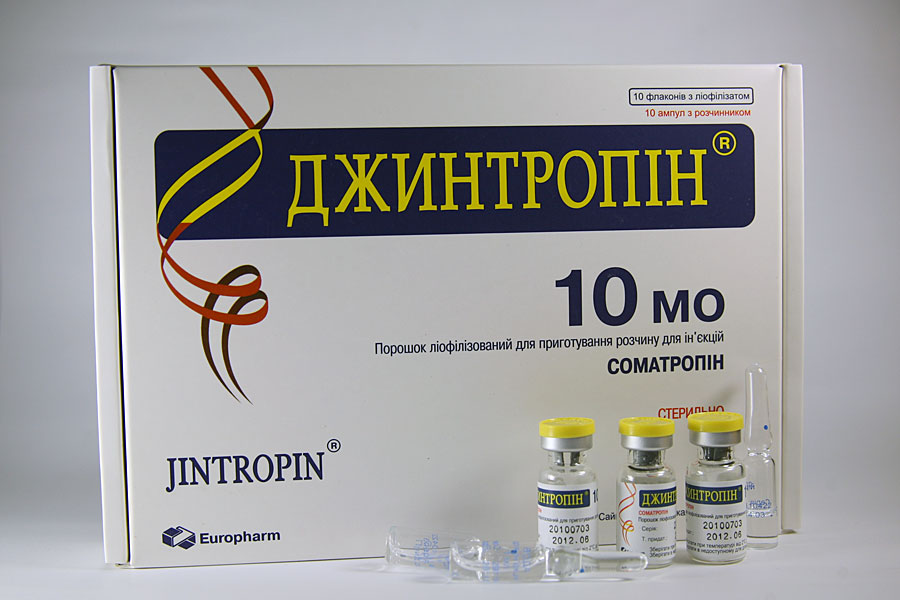
Dr. Gary Gaffney from Steroid Nation posted an article on Huffington Post about the performance enhancing effects of human growth hormone. Gaffney responds to so-called experts who assert with certainty that growth hormone does not help performance in sports. As Lou Schuler stated in a recent post, the true effects of growth hormone on performance are not always empirically “knowable and measurable.”
Gaffney takes note of the lack of empirical research examining the performance enhancing effects of drugs that has historically resulted in mainstream medical organizations failing to recognize performance enhancing drugs. Given this along with results seen in “experiments of nature,” Gaffney feels it is reasonable to conclude that GH has performance enhancing effects:
Consider that until 1984, testosterone — now the paragon of a PED — was not labeled a PED by the American Academy of Sports Medicine. Consider that most PED studies look at ‘weekend warriors’ and not elite world class athletes. And consider that no scientist has studied the effect of any PED on home run production in a double-blind placebo-controlled cross-over pharmacological study. Considering all these points, saying PEDs affect MLB home-runs — or any athletic task — constitutes a classic inductive leap. But a reasonable conclusion in my view.
Gaffney discusses the importance of syngergism in the use of performance enhancing drugs. Bodybuilders have long recognized and exploited the synergism amongst various combinations of anabolic steroids, growth hormone and other peptides, and other performance enhancing drugs and have coined the term “stacking” to describe it. But Gaffney is one of the few doctors I’ve seen that has appreciated the concept of synergy in the context of PEDs in baseball and other sports outside of bodybuilding.
In the complex physiological milieu that constitutes human biology, hormones like HGH do not act alone. Neurotransmitters, hormones, growth factors, and other biochemicals act in concert with a multiplicity of biological variables to produce behavior, performance, emotions, and the other functions that we call life…
Many experts contend that HGH by itself my not increase strength or athletic performance. However, athletes take the drug in combination with anabolic steroids, thyroid hormone, insulin, IGF-1 (insulin-like growth factor), and other ‘stacked’ PEDs. The effects of these drugs appears to be synergistic…
Experts on metabolism and endocrinology suggest that androgenic hormones modulate the response to HGH — ie. a synergistic effect. The response to HGH becomes even more complicated because another hormone IGF-1 may actually be performing much of the cellular dirty-work for HGH.
In 1999, my friend Bryan Haycock wrote a groundbreaking article on the synergism between growth hormone, insulin-like growth factor 1 (IGF-1), insulin, thyroid, and anabolic-androgenic steroids. The lengthy series offers incredible insight in the synergy of performance enhancing drugs.
In the first installment of this series we discussed the mechanism by which human growth hormone (GH) exerts its anabolic effects in the body. We also discussed the important role of insulin-like growth factor-1 (IGF-1) in the anabolic properties of GH. In part two we discussed the role of androgens in GH secretion and sensitivity in a hypothetical pharmacological regimen aimed at dramatically increasing skeletal muscle growth. Based on research looking at the effects of androgens on GH secretion and IGF-1 sensitivity, it was deduced that the testosterone esters should provide the most potent anabolic stimulus compared to other androgens, especially those that do not aromatize. Now, in the final installment, we shall look at the feasibility of using GH, IGF-1, Insulin, and perhaps tri-iodothyronine (T3) to enhance the anabolic properties of androgens.
Athletes, particularly bodybuilders, will always be far ahead of the scientific community when it comes to experimentation with performance enhancing drugs. Bodybuilders usually are the first to establish trends in the types of anabolic drugs used and the manner in which they are used. The body of knowledge amonst bodybuilders continues to advance through real world trial and error.
There is no prohibition on performance enhancing drugs in bodybuilding which completely eliminates the ethical considerations faced by researchers and physicians and even athletes subjected to doping controls. As a result, anyone who wants to learn about performance enhancing drugs just needs to investigate bodybuilding to learn what is on the leading edge.

About the author
Millard writes about anabolic steroids and performance enhancing drugs and their use and impact in sport and society. He discusses the medical and non-medical uses of anabolic-androgenic steroids while advocating a harm reduction approach to steroid education.

Leave a Reply
You must be logged in to post a comment.